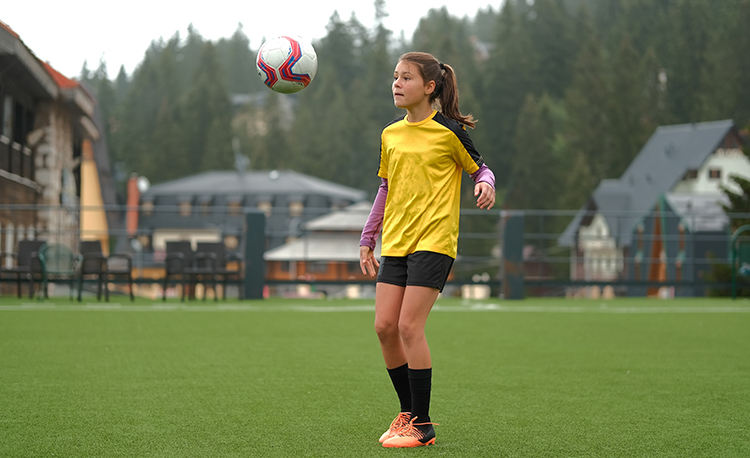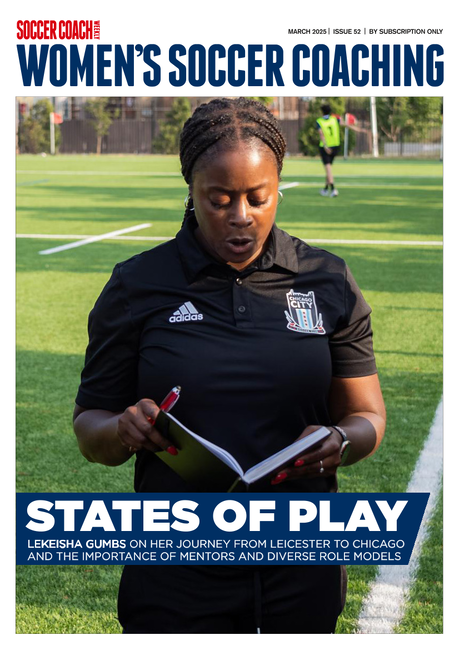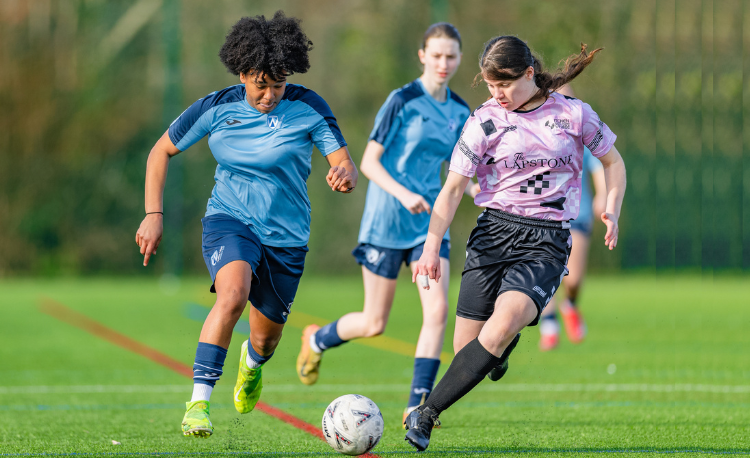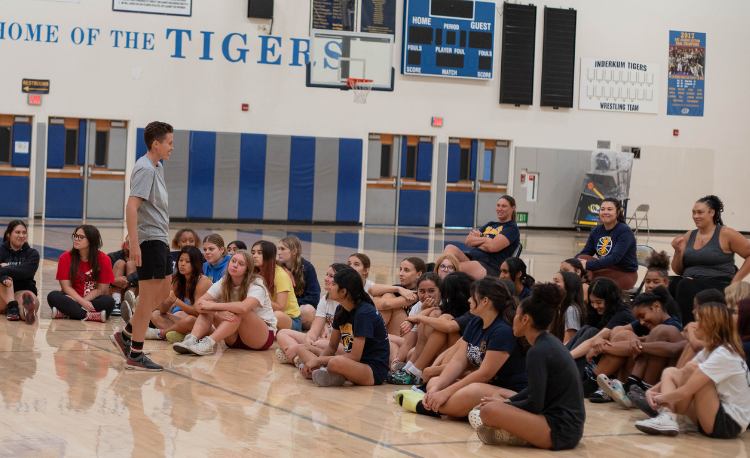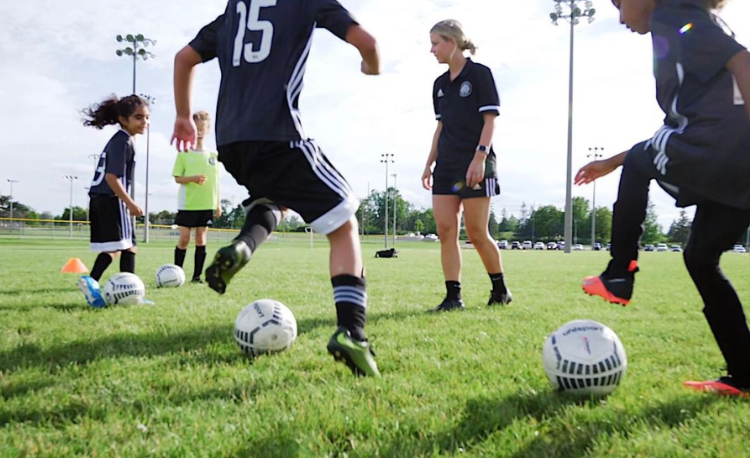You are viewing
2 of your 3 free articles
Comparison culture: a thief of enjoyment
If players are always looking to others for validation, there is a danger they will become inhibited on the field, warns mental skills coach Jennifer Ireland
The pressure and expectations of competitive soccer can be hard to navigate, both for our players and for us as coaches.
Particularly difficult is the constant hum of the comparison culture we are immersed in.
This has, sadly, become a consistent part of contemporary sports culture – from youth through professional.
We have all been socially conditioned, especially as female athletes and coaches, to compare ourselves to others – which, in turn, results in us basing our worth on how we hold up against others.
This can take a major toll on players’ mental health and their performance.
It is very easy for players to get swept up in comparison culture, because the world around them has normalized it and they have never been taught how to deal with it.
As the coach of female athletes, it’s extremely important to understand this as best you can – because, if left unchecked, it can be very detrimental.
If you are aware of what is going on, you can work to create a culture that fights against it and make space for your players to thrive.
As a coach, one of the most impactful things you can do is normalize the conversation around these difficult topics.
"We live in a world where 10-year-olds are ranked and game stats are our religion..."
Make them real by speaking about them out loud. This helps create a healthier team culture that can free your players from the negative grip of comparison culture and help them to play better soccer.
So, where do you start?
Comparison culture explained
We live in a world where 10-year-olds are ranked, game stats are our religion, 13-year-olds are being offered college scholarships and it often feels winning is the only thing that matters. We also live in the world of Instagram, TikTok and other social media.
Taken together, this is comparison culture – and it is stealing your players’ joy for the game. It is holding them back, keeping them small and letting them believe there is only one ’right’ way to do things – society’s definition of success.
Comparison culture is filling your players’ heads with limiting beliefs. It is creating the self-defeating mentality that they will never be as good as someone else.
At the root of comparison is a want for belonging and acceptance. It is about seeking approval from others as proof that you belong.
This is where fear of failure and perfectionism really take root, made worse by the pressure and results-based expectations ever present in competitive sport.
As a result, players feel like they need to live up to unrealistic expectations in order to feel worthwhile.
Let’s talk about external validation
External validation is a trap. It is dangerous because a majority of players - and coaches, to be honest – rely on it for confidence.
When other people approve of us or compliment us, then we allow ourselves to feel good and believe in ourselves.
If your players only feel good about themselves when others approve of them, they are handing over control of their confidence and self-belief to other people.
By relying on external validation for confidence, players are allowing something outside of their control to impact the way they feel about themselves.
When players compare themselves to others, they are giving other players all the power. When they rely on external validation for confidence, they are again handing off their power.
The truth is that players have absolutely no control over other people. They can’t control how other people play soccer, nor the words of validation others choose to give to them.
By focusing on things they can’t control, this not only devastates a player’s mental state and derails their performance, it also takes the fun out of the game. Comparison is the thief of joy.
Controlling the controllable
As a coach, you can help your players escape the grip of comparison culture by focusing on what they can control, as individuals and as a team.
That is not just what they think about – it is every piece of the game, be it technical, tactical, physical and mental. All four areas contain thousands of elements that players actually have complete control over.
If you create a culture that focuses on this, players will naturally move away from the detrimental aspects of comparison because their minds are elsewhere, in the present moment, paying attention to the pieces of the process they have full control over.
For example, during tactical training, ask players to choose one thing they can fully control in the activity, something that would help them execute at a higher level - it might be checking their shoulder, making runs off the ball, or checking in and out of space.
Have them prepare an internal message, a piece of instructional self-talk, to use during the activity that reminds them to do this controllable action.
Afterwards, have them reflect. Did they do the controllable thing? Did it help them play better? Ask them how they feel about doing it for themselves and their development? Do they believe they can do it again?
True confidence and self-belief comes from internal validation, not external.
Prioritizing a culture of mental skills
This is a hot topic these days, but bringing mental skills into your culture isn’t just about providing players with an app or webinars.
"Players can’t control how others play, nor the words of validation they choose to give..."
If you really want it to help your players not just survive pressure, expectations and comparison culture, but thrive amid it, it has to be brought into the team culture and incorporated into training and game play.
This is where things get hard. I know coaches are already spread too thin. I know some of you are constantly fighting to keep your job and being graded on results.
I know how many clubs or academies say they want to provide for players’ mental health, but the action piece is lacking.
This is where you come in. As the coach, you have to decide that this work is important enough to make a stand, and make it a priority in your team culture, regardless of what those around you are doing.
What percentage of soccer is mental? A lot, right? And how much time do teams actually spend training this piece of their game? Most likely, not much.
Prioritizing a mental skills culture would not only give your players the ability to navigate comparison culture, but it might also help your team play better.
Mental skills work is a combination of enhancing performance and working on wellbeing.
When you build a team culture that understands and prioritizes this piece of the game, your potential becomes unlimited.
This is because mental skills work has the power to help players see their worth beyond the bounds of their performance.
Players lessen their dependence on external validation and work towards becoming their own inner coach by building true, stable and deep confidence and self-belief.
When players are given the space to learn about themselves and focus on identity and character development alongside their game, they come to see that who they are as a person is ultimately what will drive their success in the long run.
Related Files
Newsletter Sign Up
Newsletter Sign Up
Discover the simple way to become a more effective, more successful soccer coach
In a recent survey 89% of subscribers said Women's Soccer Coaching makes them more confident, 91% said Women's Soccer Coaching makes them a more effective coach and 93% said Women's Soccer Coaching makes them more inspired.
*includes 3 coaching manuals
Get Inspired
All the latest techniques and approaches
Women's Soccer Coaching offers proven and easy to use soccer drills, coaching sessions, practice plans, small-sided games, warm-ups, training tips and advice.
We've been at the cutting edge of soccer coaching since we launched Soccer Coach Weekly in 2007, creating resources for the grassroots youth coach, following best practice from around the world and insights from the professional game.

